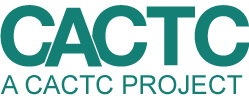April is Alcohol Awareness Month! Cortland County underage drinking is at an all time low. In Fact, the percent of teens who reported binge drinking in the 2021 Youth Development Survey is only 7.1%. You may hear a lot from the news and healthcare providers that underage drinking is bad. But what exactly about it is bad for the developing teen? Let’s get into it.
High rates of alcohol consumption can create a host of problems among youth. Students who drink alcohol are much more likely to face school problems, such as difficulty maintaining good grades, or greater school absences each year. Additionally, increased drinking can impair youths from engaging in healthy and productive activities such as school clubs and sports. Higher rates of drinking among teens can also lead to greater risk of driving under the influence, which can drastically increase the chances of getting into a car crash or sustaining unintentional injuries.
Chronic alcohol consumption among youth has also shown to have negative effects on brain growth and development. The part of the brain most affected by alcohol consumption is the hippocampus, which controls memory and learning. When youths drink excessive amounts of alcohol, this can damage cells in the hippocampus, leading to memory loss.
Have you ever heard the term, “black out” from drinking? Although you may hear people joke about this often, it can actually be pretty harmful for the brain. When a person “blacks out,” or has difficulty remembering things from a night of drinking, it is caused by damage to the cells in the hippocampus. This is especially detrimental to underage drinkers, as the brain is still growing and developing. Chronic damage to this area of the brain can unfortunately create long-term impacts on overall brain health and growth.
As a parent, it is important to communicate these risks to your children, and explain to them why underage drinking is so harmful. If you’d like to learn more about youth alcohol use in Cortland County, visit https://www.cortlandareactc.org/publications.
References:
The effects of alcohol on the adolescent brain. (2017). Queensland Health. Retrieved March 29, 2022, from https://www.health.qld.gov.au/news-events/news/the-effects-of-alcohol-on-the-adolescent-brain
Underage Drinking. (2022). CDC. Retrieved March 29, 2022, from https://www.cdc.gov/alcohol/fact-sheets/underage-drinking.htm



